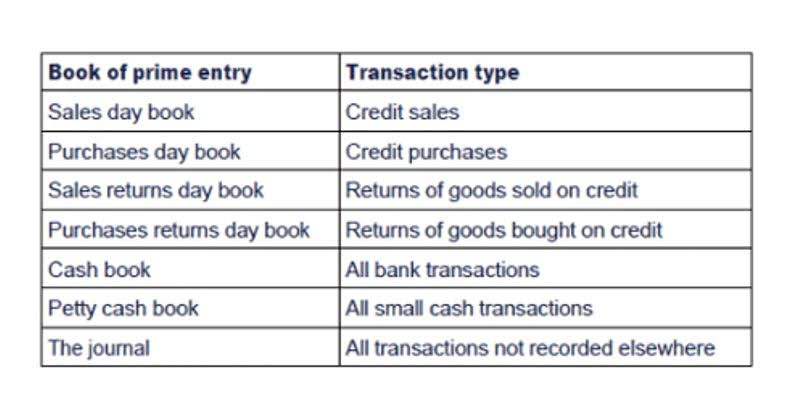Content

Where appropriate, we awarded partial points depending on how well a factoring company met each criterion. The businesses that employ A/R factoring are advertisers, wholesalers, trucking and freight companies, distributors, and telecom. The key here is that you receive the majority of the money owing to you relatively immediately, ensuring that you can handle the cost of operating your business while still having the cash you need to develop. The advantage is that the re-invoicing center can economize on the increased FX volumes exchanged in the market and hence achieve more beneficial exchange rates. Additionally, subsidiaries only have to deal with transactions in their functional currency and do not require additional FX bank accounts.
A business may seek a non-notification factoring arrangement for several reasons, but the outcomes for the business, factor, and customer are frequently the same as with standard factoring transactions. Still, they affect a bank’s earning asset management considerably since outstanding amounts cannot be regulated once the line of credit is granted. Receivables factoring deals are often structured as a sale of your invoices instead of a loan.
Definition of Accounts Receivable Factoring
After approval, many factoring companies can provide financing within a matter of days. With accounts receivable financing, on the other hand, business owners retain all those responsibilities. Next, your customer pays the https://www.bookstime.com/articles/remote-bookkeeping-service factoring company the full value of the invoice. First, factoring companies typically pay most of the value of the invoice in advance. Advance amounts vary depending on the industry, but can be as much or more than 90%.
TCI Business Capital offers invoice factoring to a range of small and midsize companies. The company shares that its underwriting guidelines are straightforward and customers typically receive quotes within 15 minutes. The company stands out because of its flexible contracts that can change from month to month. Triumph Business Capital offers invoice factoring for freight brokers and a range of other trucking companies, including everything from owner-operators and mid-sized fleets to larger operations. Advance rates are available up to 100%, but borrowers must contact Triumph to receive a quote for discount rates and factoring amounts.
Small-Business Grants: Where to Find Free Funding
The factor will ensure that customers pay within 35 days & thus, it will charge interest only on the amount lent for 35 days. Another potential advantage of factoring over most other forms of financing is that it isn’t dependent on the SME’s accounts receivable factoring credit rating. Instead, it is tied to the quality of receivables — the creditworthiness of the SME’s customers. SMEs following a low-cost leadership strategy may not be able to factor and maintain profitability because margins are too thin.
- Factoring the receivables of customers who pay reliably and quickly is probably not worth the cost.
- In contrast, with invoice financing you maintain control over the invoices and still deal directly with your customers.
- The characteristics of the business are not the only determinant of whether factoring is right for an SME.
- Spot factoring, or single invoice discounting, is an alternative to «whole ledger» and allows a company to factor a single invoice.
- The business remains responsible for collecting the invoice balance, and once an invoice is paid, the business repays the loan.
- Factoring accounts receivable is not the only way to avoid late payments and convert invoices into cash.
Typically, a percentage of the receivable amount is kept by the factor; however, that percentage can vary, depending on the creditworthiness of the customers paying the receivables. The buyer (called the “factor”) collects payment on the receivables from the company’s customers. In most traditional invoice factoring arrangements, the prospect frequently uses the facility. Depending on the client’s demands, they may factor bills weekly, monthly, or daily. Clients are advised that their accounts have been sold to factor in this sort of factoring. Buyers often provide factor with delivery receipts, account assignments, and copies of invoices, confirming to the supplier that factor has acquired their accounts.
Any size business can use factoring
FundThrough USA Inc. loans are made or arranged pursuant to a California Finance Lenders Law license. This website is using a security service to protect itself from online attacks. There are several actions that could trigger this block including submitting a certain word or phrase, a SQL command or malformed data. Get instant access to lessons taught by experienced private equity pros and bulge bracket investment bankers including financial statement modeling, DCF, M&A, LBO, Comps and Excel Modeling.
- Accounts receivable financing is usually offered by online lenders and fintech companies, many of which specialize in this type of business funding.
- Invoice financing is a type of business financing that functions as a cash advance on outstanding customer invoices.
- Regular factoring usually involves selling a batch of unpaid invoices all at once.
- In non-recourse factoring, you don’t have to pay if your customers default due to specific reasons such as bankruptcy.
- Accounts receivable financing, also known as invoice financing, allows businesses to borrow capital against the value of their accounts receivable — in other words, their unpaid invoices.
- Customers also need to be other businesses or government agencies, not individual buyers.